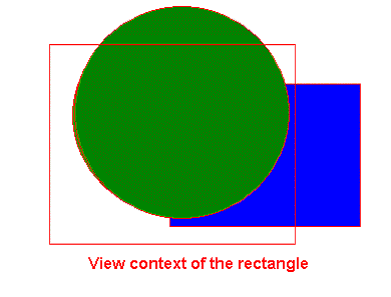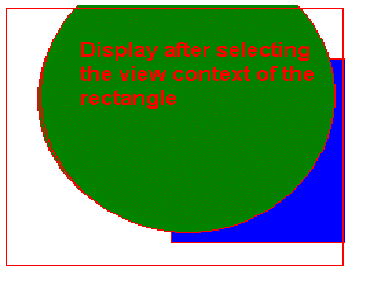| LEADTOOLS Vector C++ Class Library Help > Classes and Member Functions > LVectorObject > LVectorObject Class Members > LVectorObject::SetViewContext |
#include "ltwrappr.h"
L_INT LVectorObject::SetViewContext(pMin, pMax)
|
const pVECTORPOINT pMin; |
/* pointer to a structure */ |
|
const pVECTORPOINT pMax; |
/* pointer to a structure */ |
Sets the view context space for an object.
|
Parameter |
Description |
|
pMin |
Pointer to a VECTORPOINT structure that contains the minimum point of the view context space to set. |
|
pMax |
Pointer to a VECTORPOINT structure that contains the maximum point of the view context space to set. |
Returns
|
SUCCESS |
The function was successful. |
|
< 1 |
An error occurred. Refer to Return Codes. |
Comments
View context space is a vector space that is assigned to a specific object. Whenever that object is being viewed on the screen as a target object, this view context space will be used as the area that will be displayed instead of showing the object only. This is used mainly in setting the dimensions of an object that will be displayed by the toolkit when the same object is a target of a hyperlink.
To make sure that the view context is understood correctly an example will be needed:


After the end-user clicks on the hyperlink, which has the blue rectangle above as its target, the view is changed from the first figure to the second one, taking the view context space into consideration.
Required DLLs and Libraries
|
LVKRN For a listing of the exact DLLs and Libraries needed, based on the toolkit version, refer to Files To Be Included With Your Application. |
See Also
|
Functions: |
LVectorObject::GetViewContext, LVectorObject::RemoveViewContext |
|
Topics: |
|
|
|
Example
For an example, refer to LVectorObject::GetViewContext